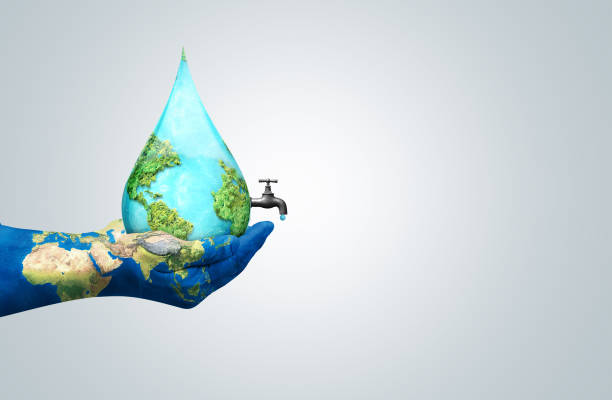Table of Contents
Water, a vital resource for all life, is facing an unprecedented crisis on a global scale. As population growth, urbanization, and climate change exert increasing pressure on freshwater supplies, the world is grappling with a water scarcity crisis that threatens the well-being of billions of people and the stability of ecosystems. This article explores the pressing challenges of the global water crisis and outlines potential solutions for sustainable water management.

The Growing Water Scarcity
The global water crisis is a complex issue with multiple contributing factors:
Population Growth: The rapid increase in the world’s population is driving higher demand for water for domestic, agricultural, and industrial uses.
Urbanization: As more people migrate to cities, the demand for water for municipal services, such as drinking, sanitation, and irrigation, rises significantly.
Climate Change: Climate change is altering precipitation patterns, leading to more frequent and severe droughts and floods. This disrupts water availability and quality.
Pollution: Industrial waste, agricultural runoff, and domestic sewage contaminate water sources, making them unsuitable for consumption and harming ecosystems.
Inefficient Water Use: Many regions suffer from inefficient water management practices, leading to wastage and unsustainable consumption.

The Impacts of Water Scarcity
The consequences of water scarcity are far-reaching and can have severe implications for:
Human Health: Lack of access to clean water can lead to waterborne diseases, malnutrition, and increased mortality rates.
Agriculture: Water scarcity hampers agricultural productivity, leading to food shortages and higher food prices.
Economic Development: Water scarcity can hinder economic growth by limiting industrial production and affecting tourism.
Environmental Degradation: Water scarcity can contribute to desertification, biodiversity loss, and ecosystem collapse.
Solutions for Sustainable Water Management
Addressing the global water crisis requires a multifaceted approach that involves:
Improved Water Governance: Effective water governance is essential for ensuring equitable access to water resources and promoting sustainable management. This includes developing policies, regulations, and institutions that prioritize water conservation and allocation.
Water Efficiency and Conservation: Reducing water consumption through efficient practices is crucial for mitigating water scarcity. This can be achieved by promoting water-saving technologies in agriculture, industry, and households, as well as implementing rainwater harvesting and greywater recycling systems.
Integrated Water Resource Management (IWRM): IWRM involves managing water resources holistically, considering the interconnectedness of water use sectors (e.g., agriculture, industry, domestic). It promotes efficient allocation of water resources and minimizes conflicts among users.
Climate Change Adaptation: Investing in climate change adaptation measures is essential for building resilience to the impacts of climate change on water resources. This includes constructing water infrastructure that can withstand extreme weather events and developing early warning systems for droughts and floods.
Sustainable Agriculture: Promoting sustainable agricultural practices that reduce water consumption, such as drip irrigation and precision agriculture, can help alleviate water scarcity.

Investment in Water Infrastructure: Investing in water infrastructure, such as dams, reservoirs, and treatment plants, is necessary to improve water supply and quality. However, these investments must be carefully planned and managed to avoid negative environmental and social impacts.
Public Awareness and Education: Raising public awareness about the importance of water conservation and sustainable water management is crucial for fostering behavioral change. Education programs can empower individuals and communities to adopt water-saving practices and advocate for responsible water stewardship.
International Cooperation
The global water crisis is a complex challenge that transcends national boundaries. International cooperation is essential for addressing this issue effectively. Governments, international organizations, and NGOs can work together to share knowledge, technology, and resources to promote sustainable water management and address transboundary water issues.
Conclusion
In conclusion, the global water crisis is a pressing challenge that requires urgent attention. By implementing sustainable water management practices, investing in water infrastructure, and fostering international cooperation, we can ensure a more secure and equitable water future for generations to come.